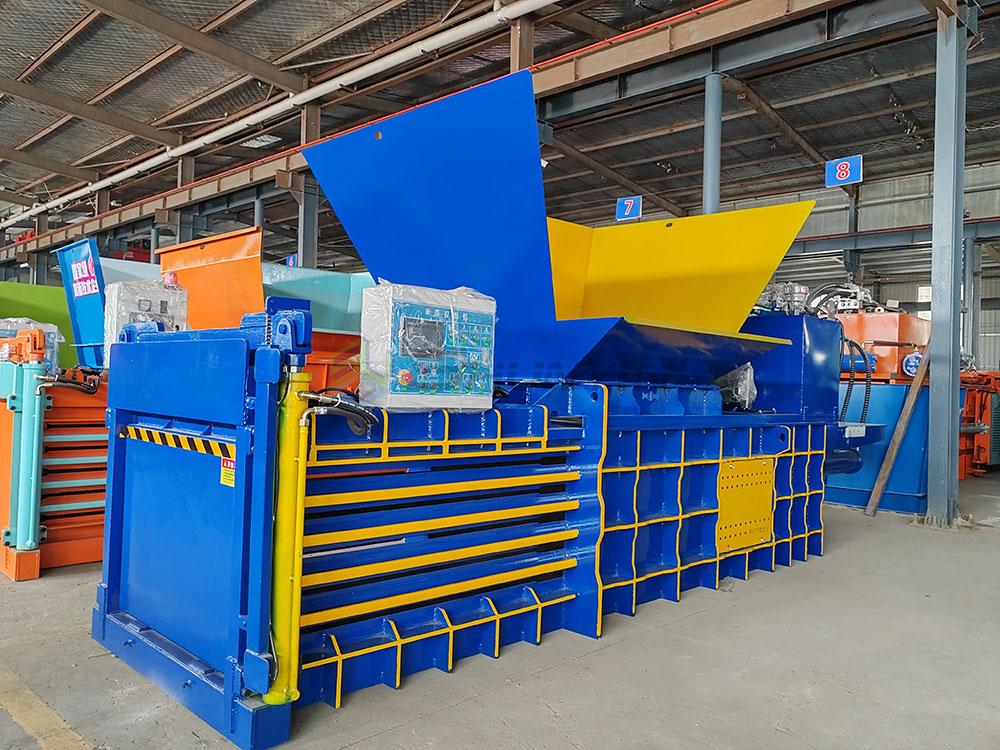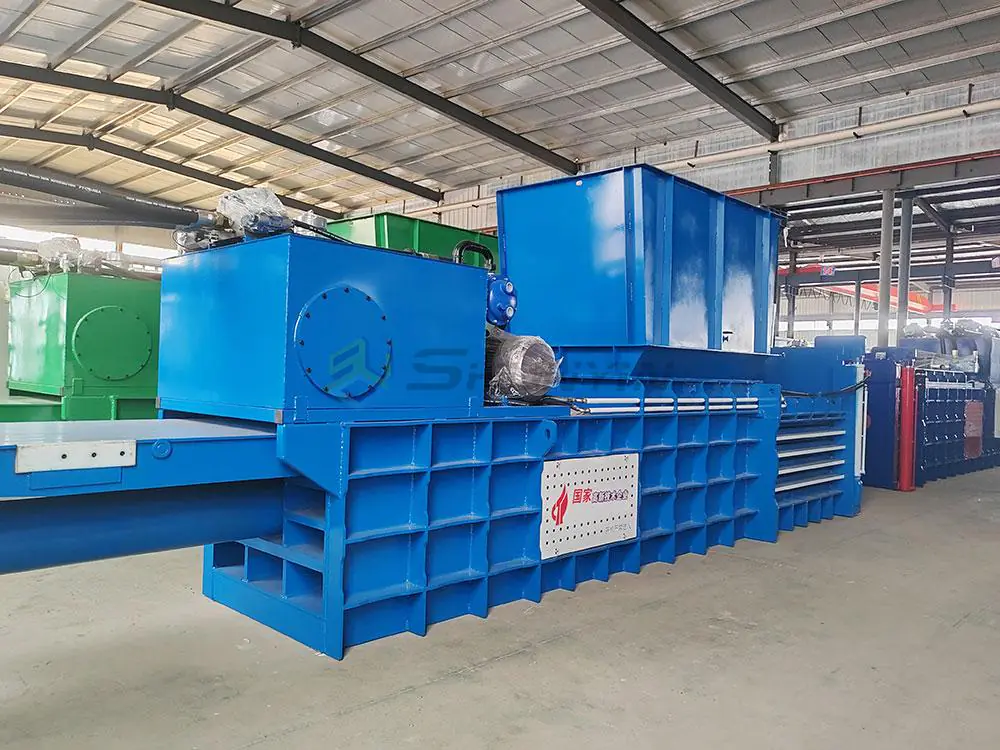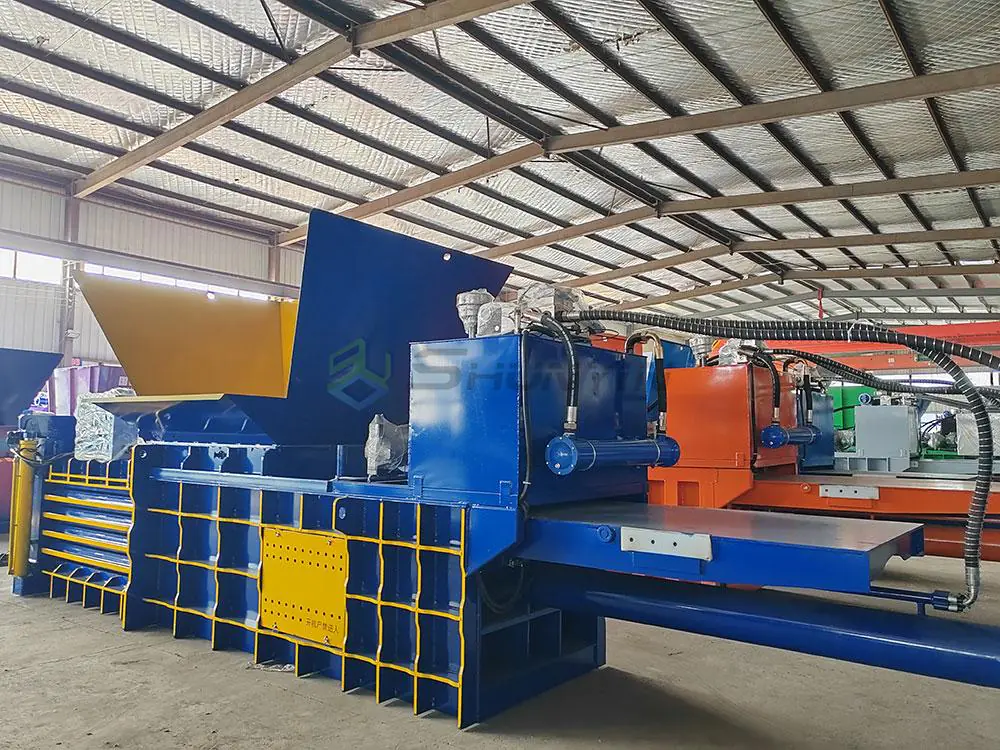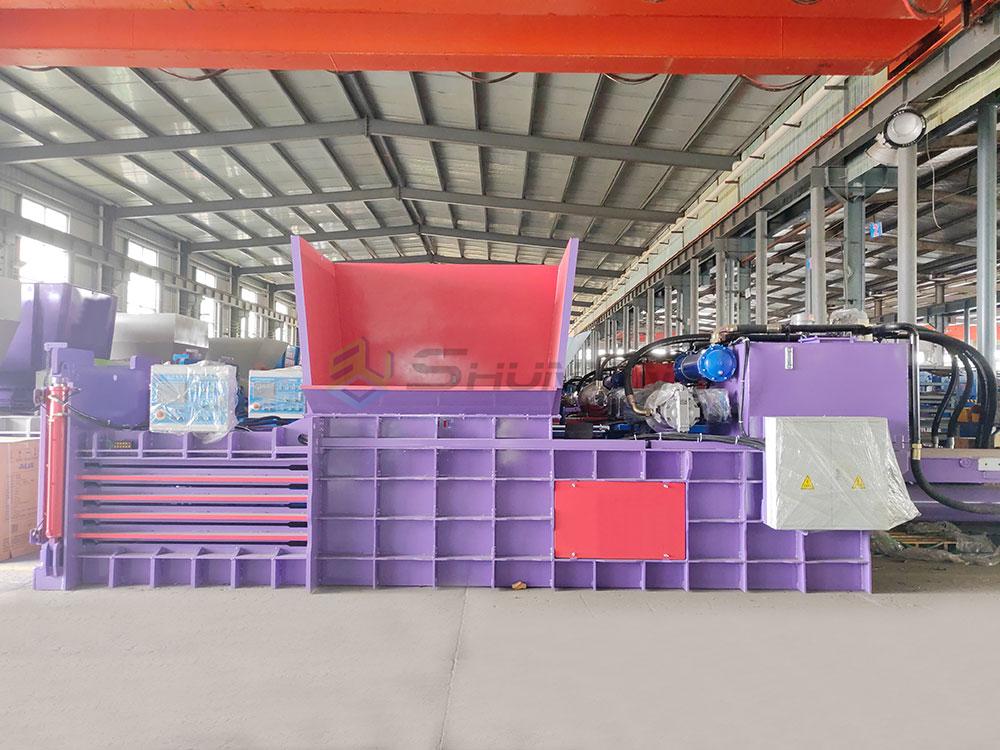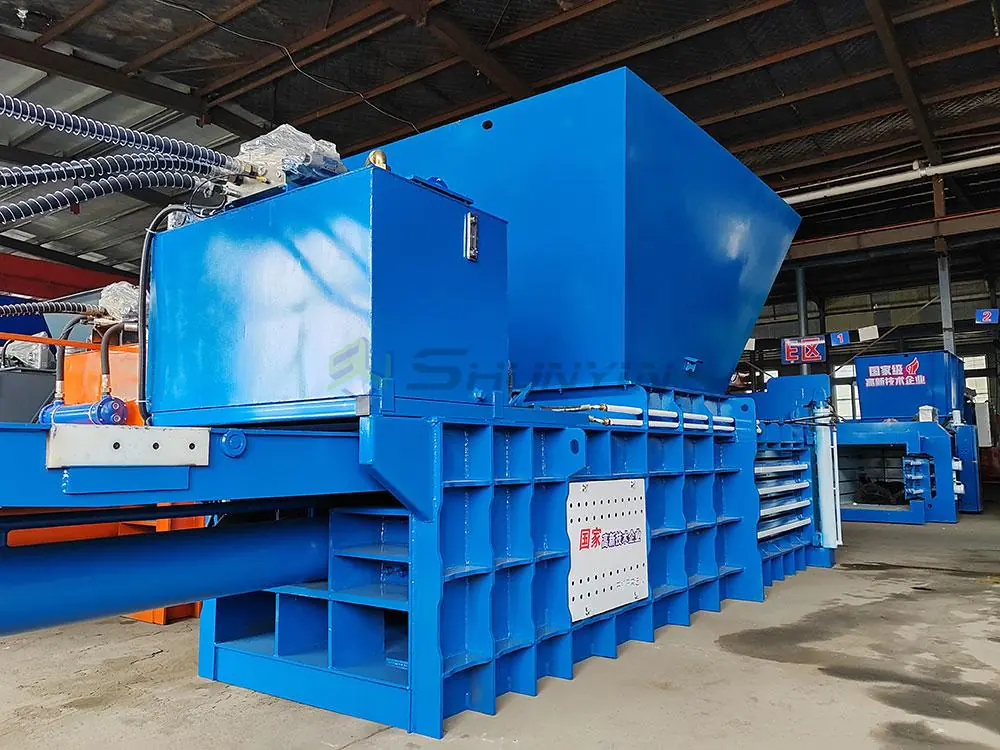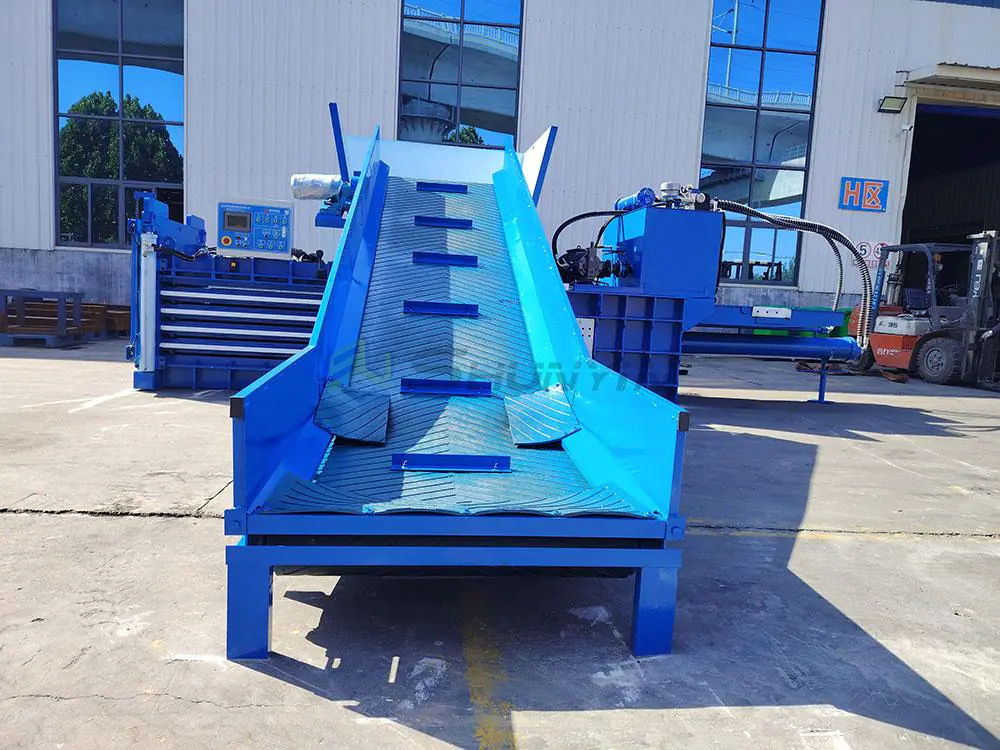
Sourcing reliable machinery can be daunting. Many businesses face challenges in finding quality balers that fit their needs.
Buying horizontal hydraulic balers from China offers benefits such as competitive pricing, customization options, high quality, and advanced technology. China has a large network of suppliers, making it easier to find a suitable baler. Additionally, Chinese manufacturers are experienced in exporting, ensuring smooth international transactions.
Imagine securing top-tier balers that enhance your operational efficiency without breaking the bank. Let’s explore why purchasing from China is advantageous.
How does a plastic baler work?
Understanding the mechanics of a plastic baler is essential for making informed purchasing decisions.
A plastic baler compresses plastic waste into compact bales using hydraulic pressure, facilitating easier storage and transportation while reducing overall waste volume.

The Compression Process
Plastic balers operate through a series of steps to efficiently manage waste:
- Loading: Plastic materials are fed into the baler through a hopper.
- Compression: Hydraulic systems apply significant pressure, compacting the plastic into dense bales.
- Tying: Automated systems secure the bales with wires or straps for stability.
- Ejection: The compacted bale is ejected for storage or transportation.
Benefits of Plastic Balers
Investing in a plastic baler offers numerous advantages:
- Space Efficiency: Reduces the volume of plastic waste, saving valuable storage space.
- Cost Savings: Decreases transportation costs by minimizing the number of trips needed.
- Environmental Impact: Enhances recycling efforts and supports sustainability initiatives.
- Operational Efficiency: Automates the baling process, reducing labor costs and increasing productivity.
Real-World Application
A manufacturing plant implemented a plastic baler from China and saw a 40% reduction in waste disposal costs. The baler’s efficiency allowed them to process more materials in less time, leading to significant operational improvements.
| Step | Description |
|---|---|
| Loading | Plastic waste is introduced into the baler |
| Compression | Hydraulic pressure compacts the waste into bales |
| Tying | Automated systems secure the baled plastic |
| Ejection | Finished bales are removed for storage or transport |
These features highlight the effectiveness of plastic balers in managing and reducing plastic waste efficiently.
Why are balers important?
Balers play a crucial role in waste management systems, providing significant benefits to businesses and the environment.
Balers are important because they streamline waste handling, reduce storage and transportation costs, and support sustainable practices by enabling efficient recycling and waste reduction.

Streamlining Waste Management
Balers transform loose waste materials into compact bales, making the handling process more efficient:
- Efficiency: Automates the compression of waste, saving time and labor.
- Cost Reduction: Lowers transportation costs by decreasing the volume of waste.
- Space Saving: Minimizes the storage space required for waste materials.
- Safety: Reduces the risk of accidents by eliminating scattered waste.
Environmental Benefits
Balers contribute to environmental sustainability by:
- Enhancing Recycling: Compact bales are easier to transport and process in recycling facilities.
- Reducing Landfill Use: Decreases the amount of waste sent to landfills, conserving space and reducing pollution.
- Promoting Sustainability: Supports businesses in achieving their sustainability goals through efficient waste management.
Case Study
A retail chain adopted balers from China and experienced a 50% decrease in their waste disposal costs. The balers enabled them to recycle more effectively, aligning with their corporate sustainability objectives.
| Benefit | Impact |
|---|---|
| Efficiency | Faster waste processing and reduced labor costs |
| Cost Reduction | Lower transportation and disposal expenses |
| Space Saving | Less storage space needed for waste materials |
| Environmental Impact | Increased recycling and reduced landfill usage |
Balers are indispensable tools for modern waste management, offering both economic and environmental advantages.
What is the difference between vertical and horizontal balers?
Choosing the right type of baler depends on your specific waste management needs and operational requirements.
Vertical balers are compact and suitable for smaller spaces with lower volume waste, while horizontal balers are ideal for high-volume, industrial applications, offering greater efficiency and capacity.

Vertical Balers
Vertical balers are designed for environments with limited space and lower waste volumes:
- Size: Compact footprint, suitable for small facilities.
- Capacity: Lower bale output, ideal for small to medium-sized businesses.
- Operation: Typically manual or semi-automatic, requiring more labor.
- Applications: Suitable for offices, small retail stores, and light industrial use.
Horizontal Balers
Horizontal balers are built for high-capacity operations, providing superior performance in large-scale settings:
- Size: Larger footprint, requiring ample space.
- Capacity: High bale output, capable of handling large volumes of waste.
- Operation: Fully automatic, reducing the need for manual labor.
- Applications: Ideal for manufacturing plants, large retail chains, and industrial facilities.
Comparative Analysis
| Feature | Vertical Balers | Horizontal Balers |
|---|---|---|
| Footprint | Compact | Larger |
| Capacity | Lower | Higher |
| Operation | Manual or semi-automatic | Fully automatic |
| Suitable For | Small to medium-sized businesses | Large-scale, industrial applications |
| Cost | Generally lower initial investment | Higher initial investment, cost-effective at scale |
Selecting the Right Baler
Choosing between vertical and horizontal balers depends on factors such as waste volume, available space, and budget. Horizontal balers are preferred for businesses with high waste output and sufficient space, offering long-term cost savings through increased efficiency.
Practical Example
A large manufacturing facility switched from vertical to horizontal balers from China, resulting in a 60% increase in waste processing capacity. The horizontal balers’ automation features significantly reduced labor costs and improved overall operational efficiency.
Horizontal balers are a strategic investment for businesses aiming to scale their waste management operations effectively.
What is an industrial baler?
Industrial balers are robust machines designed to handle large volumes of waste with high efficiency and reliability.
An industrial baler is a heavy-duty machine used in large-scale waste management operations to compress materials into dense bales, enhancing storage and transportation while supporting recycling and sustainability efforts.

Key Features of Industrial Balers
Industrial balers are equipped with advanced features to meet the demands of large-scale operations:
- High Compression Force: Achieves maximum density in bales, reducing waste volume significantly.
- Durability: Built with heavy-duty materials to withstand continuous use in industrial environments.
- Automation: Features like automatic tying and bale ejection streamline the baling process.
- Versatility: Capable of handling a wide range of materials, including plastics, metals, and cardboard.
Advantages of Using Industrial Balers
Implementing industrial balers in your waste management system offers several benefits:
- Increased Efficiency: Automates the baling process, allowing for faster and more consistent waste handling.
- Cost Savings: Reduces labor and transportation costs by minimizing waste volume and the number of trips needed.
- Space Optimization: Maximizes storage space by producing compact bales, freeing up valuable facility space.
- Environmental Impact: Supports recycling initiatives and reduces the environmental footprint of your business.
Implementation in a Large Facility
A logistics company integrated industrial balers from China into their waste management system. This integration led to a 70% reduction in waste disposal costs and improved their recycling rates, contributing to their sustainability goals.
| Feature | Benefit |
|---|---|
| High Compression Force | Maximizes waste reduction and storage efficiency |
| Durability | Ensures long-term reliability and minimal downtime |
| Automation | Enhances operational efficiency and reduces labor needs |
| Versatility | Handles various types of waste materials seamlessly |
Choosing the Right Industrial Baler
Selecting the appropriate industrial baler involves assessing your specific waste management needs, the types of materials you handle, and the volume of waste generated. Balers from China are known for their quality and customization options, allowing you to find a solution tailored to your operational requirements.
Success Story
A large-scale recycling center adopted industrial balers from China, resulting in a 50% increase in processing capacity. The balers’ robust construction and automated features enabled the center to handle higher volumes of waste efficiently, enhancing their overall productivity and sustainability efforts.
Industrial balers are essential for businesses seeking to optimize their waste management systems, offering significant operational and environmental benefits.
Conclusion
Purchasing horizontal hydraulic balers from China provides businesses with cost-effective, high-quality, and customizable solutions. By understanding the mechanics, benefits, and types of balers, you can make informed decisions that enhance your waste management efficiency and support your sustainability goals.


